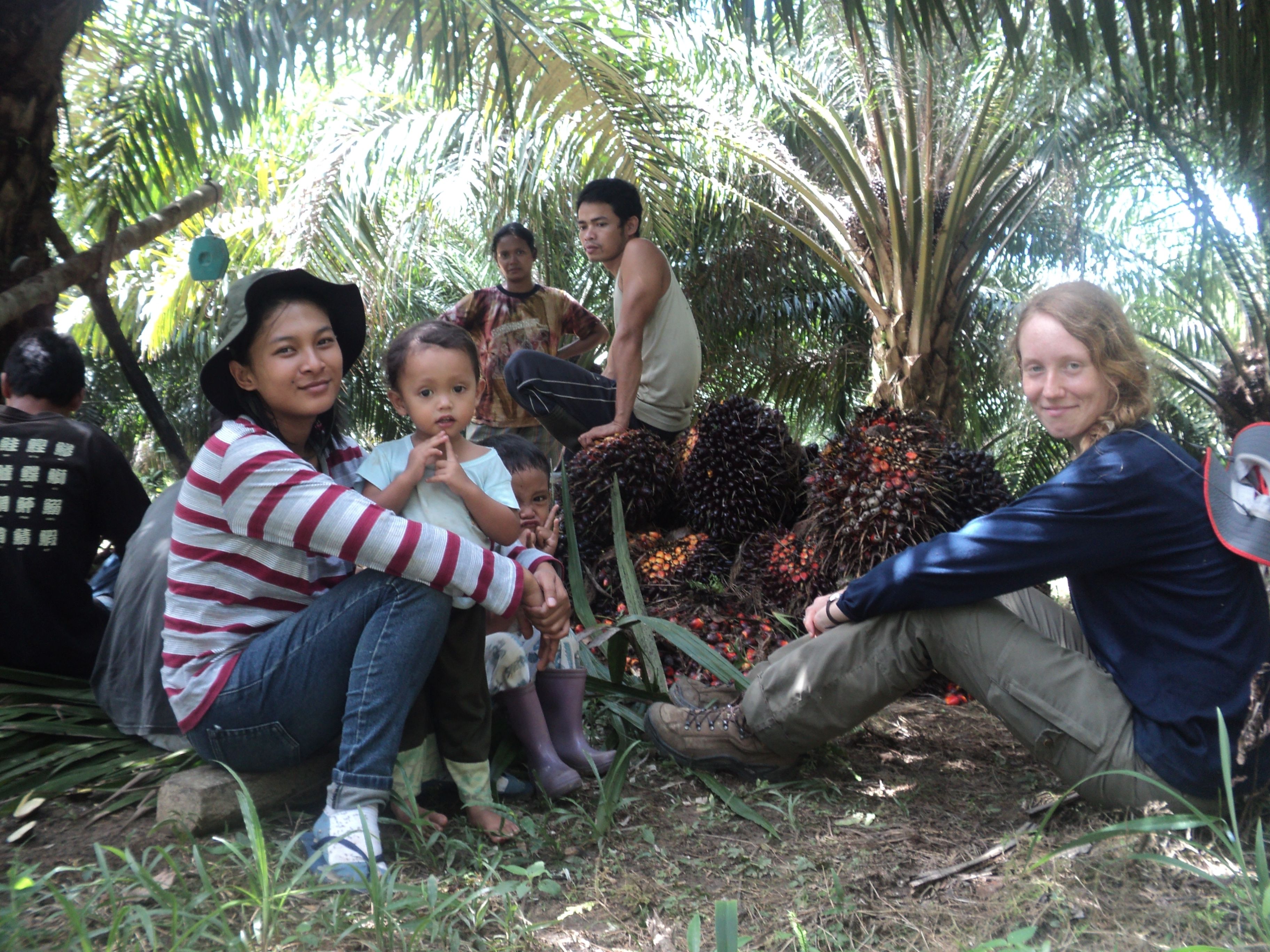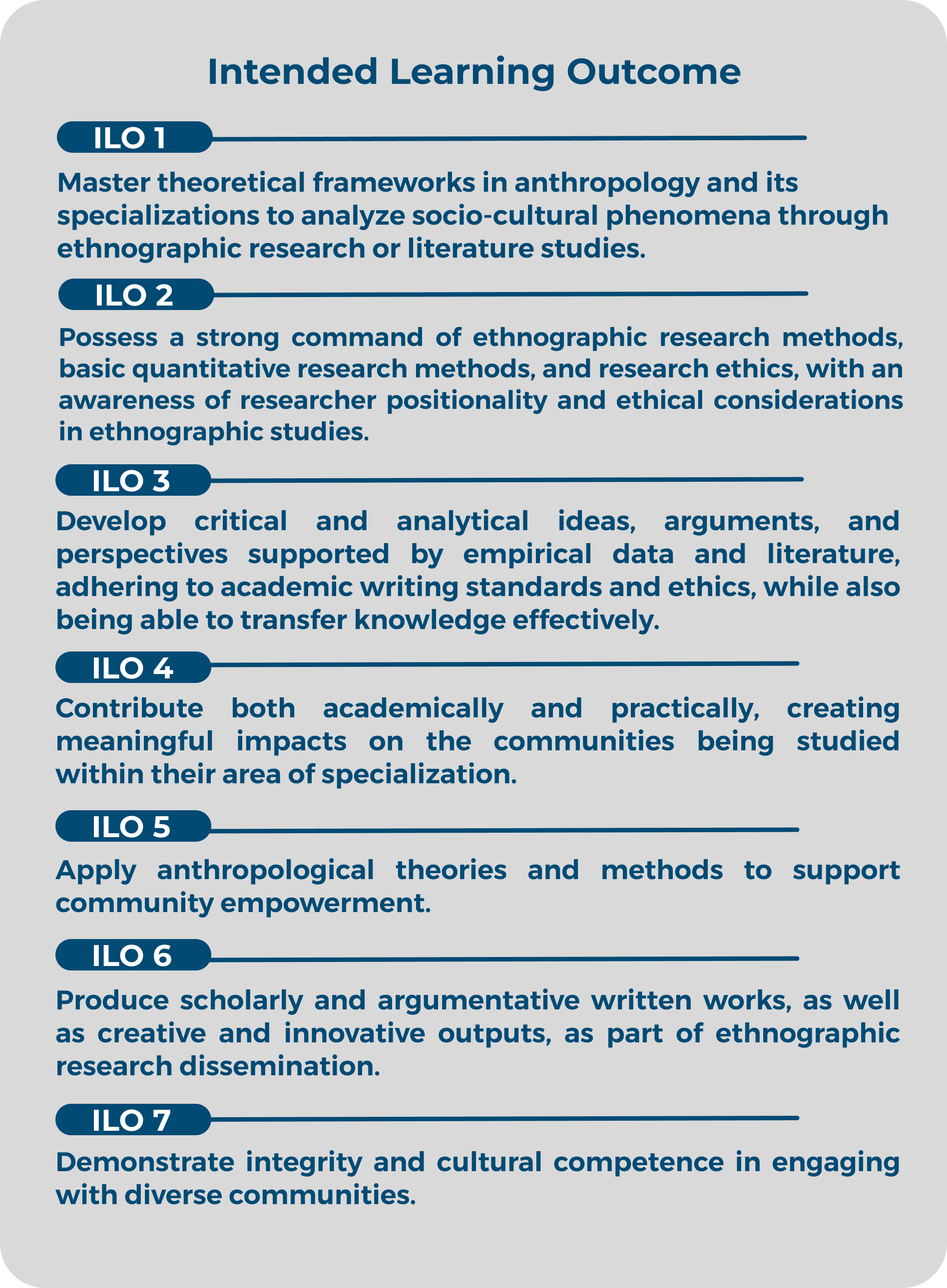
The Magister of Anthropology Study Program offers advanced education in human socio-cultural life. Through a semi-independent, participatory learning approach, students develop critical thinking skills to identify socio-cultural problems, formulate research questions, conduct studies using solid anthropological methods, and present their findings through ethnographic narratives and other comprehensive formats.
Master’s students have the opportunity to specialize in various fields, including political economy and resources, politics and infrastructure, health, care, and welfare, media and cultural construction, art and heritage tourism, and community empowerment.
The program equips graduates with the expertise to analyze social issues, formulate critical research questions relevant to contemporary society, and apply anthropological theories and methodologies to address these challenges. Graduates are also prepared to engage with and manage socio-cultural issues in diverse and pluralistic societies.

Prospective students can choose from three admission pathways:
1. Regular Admission
Self-Funded
This pathway is for applicants who will cover their own tuition fees.
Sponsored Admission
This pathway is available for:
Scholarship Applicants
This pathway is for applicants who are in the process of applying for a scholarship or awaiting the results of a scholarship selection from various funding institutions.
2. Fast-Track Admission
This pathway is for UGM undergraduate or applied undergraduate graduates who meet the following criteria:
3. International Admission
This pathway is for international applicants (non-Indonesian citizens). More information about International Admission can be found on the official UGM website.
For complete information, please refer to the following links:

The study programs within the Department of Anthropology are interconnected. At the master’s level, graduates are expected to critically master anthropological theories and their applications. Since 2022, the Master’s Program in Anthropology has introduced a specialization in community empowerment, equipping graduates with the theoretical foundation and practical skills to apply anthropology in empowering communities.
The Master’s Program in Anthropology (Prodi S2 Antropologi) offers four specialization clusters: Cluster A – Theory & Ethnography, Cluster B – Globalization, Politics, Economy, and Environment, Cluster C – Medical Anthropology, and Cluster D – Culture, Media, and Lifestyle. Throughout their studies, students are required to take a minimum of four courses from their chosen cluster.
For students specializing in Community Empowerment, there are three clusters: 1) Environmental Management, 2) Indigenous Communities and Village Governance, and 3) Multiculturalism and Cultural Advancement. Students in this track must take a minimum of three courses.
To provide a solid foundation for each cluster, core courses are mandatory for all students. These include Philosophy of Science (Paradigms and Anthropological Theories), Research Methods and Ethics, and Cultural Theory. Students without a background in anthropology are also required to take Introduction to Anthropology and Ethnographic Research Methods.
The courses in the Master’s Program in Anthropology are taught by faculty members who specialize in their respective fields. Each lecturer typically has expertise in a specific area, contributing to the curriculum development of their courses. However, to ensure that students gain a broader range of knowledge and experience, courses are ideally taught by a team of lecturers. This approach helps students develop a strong foundation in anthropological theory, methodology, and research themes.
The Master’s Program consists of classroom-based courses, where students must complete a minimum of 34 credits (SKS), and a thesis worth 8 credits (SKS).
The program can be completed within 1.8 to 2 years. Ideally, students graduate within two years, with the first year dedicated to coursework and the second year focused on research and thesis writing.
In detail, the composition of the courses presented in the regular interest Anthropology Graduate Program is as follows:
Reguler:
In detail, the composition of the courses presented in the Anthropology Master of Interest Program is as follows:
empowerment interest: